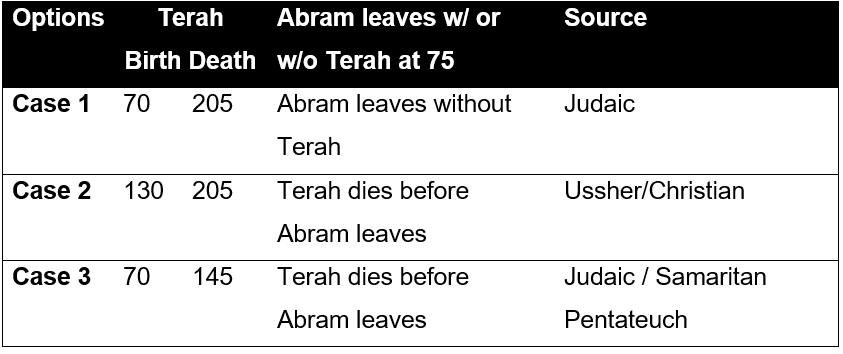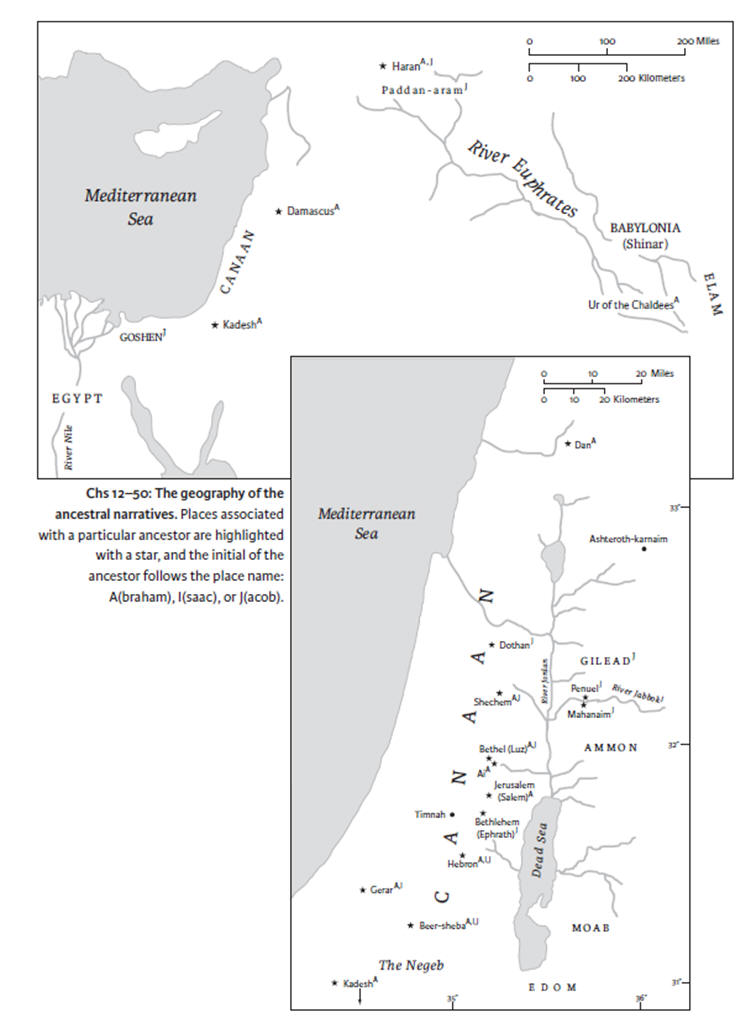Genesis 11
1Now the entire earth was of
one language and uniform words.
2And it came to pass when they traveled from the east,
that they found a valley in the land of
Shinar and settled there.
3And they said to one another, ‘Come, let us make bricks
and fire them thoroughly’; so the bricks were to them for stones,
and the clay was to them for mortar.
4And they said, ‘Come, let us build ourselves a city and
a tower with its top in the heavens, and let us make ourselves a
name, lest we be scattered upon the face of the entire earth.’
5And the Lord descended to see the city and the tower
that the sons of man had built.
6And the Lord said, ‘Lo! [they are] one people, and they
all have one language, and this is what they have commenced to do.
Now, will it not be withheld from them, all that they have planned
to do?
7Come, let us descend and confuse their language, so that
one will not understand the language of his companion.’
8And the Lord scattered them from there upon the face of
the entire earth, and they ceased building the city.
9Therefore, He named it
Babel, for there the Lord
confused the language of the entire earth, and from there the Lord
scattered them upon the face of the entire earth.
10These are the generations of Shem: Shem was one hundred
years old, and he begot Arpachshad, two years after the Flood.
11And Shem lived after he had begotten Arpachshad five
hundred years, and he begot sons and daughters.
12And Arpachshad lived thirty five years, and he begot
Shelah.
13And Arpachshad lived after he had begotten Shelah four
hundred and three years, and he begot sons and daughters.
14And Shelah lived thirty years, and he begot Eber.
15And Shelah lived after he had begotten Eber, four
hundred and three years, and he begot sons and daughters.
16And Eber lived thirty four years, and he begot Peleg.
17And Eber lived after he had begotten Peleg, four
hundred and thirty years, and he begot sons and daughters.
18And Peleg lived thirty years, and he begot
Reu.
19And Peleg lived after he had begotten Reu, two hundred
and nine years, and he begot sons and daughters.
20And Reu lived thirty two years, and he begot
Serug.
21And Reu lived after he had begotten Serug two hundred
and seven years, and he begot sons and daughters.
22And Serug lived thirty years, and he begot
Nahor.
23And Serug lived after he had begotten Nahor, two
hundred years, and he begot sons and daughters.
24And Nahor lived twenty nine years, and he begot
Terah.
25And Nahor lived after he had begotten Terah one hundred
and nineteen years, and he begot sons and daughters.
26And Terah lived seventy years, and he begot
Abram,
Nahor, and
Haran.
27And these are the generations of Terah: Terah begot
Abram, Nahor, and Haran, and Haran begot Lot.
28And Haran died during the lifetime of Terah his father
in the land of his birth, in
Ur of the Chaldees.
29And Abram and Nahor took themselves wives; the name of
Abram's wife was Sarai, and the name of Nahor's wife was Milcah, the
daughter of Haran, the father of Milcah and the father of
Iscah.
30And Sarai was
barren; she had no child.
31And Terah took Abram his son and
Lot the son of Haran, his grandson, and Sarai his daughter in
law, the wife of Abram his son, and they went forth with them from
Ur of the Chaldees to go to the land of Canaan, and they came as far
as
Haran and settled there.
32And the days of Terah were two hundred and five years, and
Terah died in Haran.
_______________________________________________________
The Terah Age Problem
There is disagreement as to the age of Terah
when he had Abram and whether Abram left Haran before or after Terah
dies in Haran. All (except Samaritan Pentateuch) agree that i) Terah died in Haran,
ii) at age 205, and that Abram was 75 when he left. The Hebrews
interpret 11:26 ‘And Terah lived seventy years, and he begot Abram,
Nahor, and Haran’ that Terah was 70 when he had Abram and that Abram
left at age 75 without Terah then later retrieved his body when he
died at age 205. Ussher is firm, per Acts 7.4 Acts 7:4 (New Testament) ‘Then he [Abram] left the country of the Chaldeans [Ur]
and settled in Haran. After his father [Terah] died, God had him
move from there to this country [Canaan] in which you are now
living.’, that Abram remained in Haran until Terah’s death at age
205 however Abram could not be 75 when he leaves, stay until Terah
dies at age 205, if Terah was 70 when he had Abram (Abram would be
205-70=130 not 75). Ussher solves the age problem by assuming Terah was rather
130 years old when he had Abram so when Terah dies in Haran at age
205 and Abram leaves thereafter at age 75 the math works out
(205-130=75). Ussher’s rational is that Terah can not be 70 when he
has all three children unless Terah’s wife had triplets or Terah had
three wives who all conceived at once. Ussher decided that Abram,
although named first, was not the first of the three sons to be
born, thereby placing Abram’s birth in Terah’s 130th year so that
Abram can remain in Haran until his death. The Septuagint version
states same as Masoretic text that Terah died at age 205 but the
Samaritan Pentateuch lists his age at 145 allowing him to die before
Abram leave at age 75 [145 - 70 = 75]. The summary of the different interpretations is below.

Now in "keeping up with the patriarchs" from
Abraham onward we need to consider two possible dates that differ by
60 years in AM counting, one based on Judaic, the other on Christian
[James Ussher] interpretation and tradition as well as the different
assigned dates for creation, one by James Ussher [Christian] which
is 4004 BC and the Judaic tradition of 3761 BC.
Keeping up with the Patriarchs
- Abram is 70 years old
- Abram leaves Ur of Chaldees and arrives in Haran
- The Year is 2078 AM (Ussher) or 2018 AM (Hebrew)a
- The Date is 1926 BC (Ussher) or 1743 BC (Hebrew)b
aAM
and dates between Ussher and
Hebrew differ by 60 years due to different proposed begetting age for
Abram by Terah. Hebrew uses age 70 years per Genesis 11:26
whereras Ussher uses 130 years old
bUssher uses 4004 BC as date of
creation whereas Hebrew or Judaic tradition the date used is 3761 BC (The Hebrew year count
starts in year 3761 BCE, which the 12th-century Jewish philosopher
Maimonides established as the biblical Date of Creation) thus
conversion AM to BC: Current year BC = Date of creation in BC (Ussher or Hebrew) - AM
(Ussher or Hebrew): Ussher date BC = 4004-2078 = 1926 BC and Hebrew
date BC = 3761-2018 = 1743 BC
Interesting take-Away: in addition to Terah six patriarchs are still alive when Abraham leaves Haran for
Canaan. Where were they living and what were their stories? The
bible (canon) makes no more mention of these patriarchs after
genesis 11 and their passing. Also if Shem still has 140 years of
life left we
can assume his brothers Ham and Japheth have similar longevity and
thus are likely also alive living presumably in their respective
nations they founded, see Table of Nations in supplemental
materials. Shem would have lived in his nation of Canaan where Abram
was heading.

Further analysis of Terah's age when he had Abraham has major impact on who he might have known thus buried or who had died before him thus he never knew. See below:
Major Take-Aways
Table 2: Only
one can be true!
1) In Judaic tradition
[Terah begets age 70] Abraham is 58 when Noah dies and thus must
have known him well and possibly? Should have? buried him? OR in
Christian tradition [Terah is 130] Noah dies 2 years before Abram is
born thus never could know him.
Math: Noah born 1056 AM and dies at age 950 in 2006 AM. Ussher
[Christian] Abram born in 2008 AM or 2 years after Noah dies [2006 -
2008 = -2]. In Hebrew tradition Abram born 1948 AM thus is 58 when
Noah dies in 2006 AM [2006 – 1948 = 58].
2) A "Christian" Abraham [Terah 130] did not know Peleg whereas a "Judaic" Abraham [Terah 70] is age 48 when Peleg died and thus knew him.
3) A "Christian" Abram [Terah 130] outlives Shem and is 148 when Shem dies. In "Judaic" case [Terah 70] Shem rather outlives Abraham by 33 years.
Aram-Naharaim
Aram between (the) rivers’) is the biblical term for the ancient land of the Arameans referring to the region along the great bend of the Euphrates river. Aram-Naharaim is also mentioned as Nahrima of the Arameans in the El-Amarna letters. It is mentioned five times in the Old Testament. In Genesis, it is used interchangeably with Paddan Aram and Haran. Both the Septuagint and Flavius Josephus translate the name as Mesopotamia however the Hebrew term refers to a northern region within Mesopotamia (close to Haran).
Map showing Cities of Patriarchs
Compliments of the “The New Oxford
Annotated Bible”

|
|
|